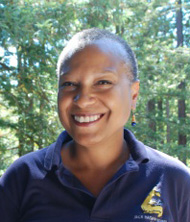Campus News
Baskin School of Engineering hosts meeting on women in technology
Members of the National Center for Women and Information Technology (NCWIT) Pacesetters Program met at UCSC in February.


The Baskin School of Engineering at UC Santa Cruz hosted a meeting on women in technology in February, bringing together members of the National Center for Women and Information Technology (NCWIT) Pacesetters Program. Representatives of colleges, universities, and corporations involved in the national program discussed their efforts to increase diversity in the technical workforce, sharing strategies and insights during the two-day meeting.
UC Santa Cruz has been involved in the NCWIT Pacesetters Program since its inaugural year in 2010. NCWIT Pacesetters is a fast-track program in which senior executives from universities and corporations commit to increasing their numbers of technical women. Pacesetters organizations work to recruit previously untapped talent pools of technical women and retain women who are at risk of leaving, resulting in “net new” women for their organizations.
“As long as women are underrepresented in computer science and engineering, the high-tech industry loses out because their talents are going elsewhere. At Baskin Engineering, we are committed to increasing the numbers of women in our undergraduate, graduate, and faculty ranks,” said Art Ramirez, dean of the Baskin School of Engineering at UC Santa Cruz.
In its pilot program, from 2010 to 2012, Pacesetters sought to add 1,000 net new women to the U.S. tech talent pool by 2012, using a variety of new strategies to reach their goals. The result was 1,635 net new women in just two years. The new cohort announced for 2013 to 2015 includes 35 organizations. In addition to UC Santa Cruz, they include UC Irvine, Carnegie Mellon University, Purdue University, and Georgia Tech, and corporations such as Qualcomm, Intel, Facebook, and Google. The Pacesetters program is sponsored by the National Science Foundation (NSF), Google, and Qualcomm.
“The goal is to increase the numbers of technical women in our own respective environments. The cross-organizational aspect of the program is especially helpful because there are not a lot of arenas where companies and universities sit down together to talk about how we can impact this issue,” said Adrienne Harrell, director of undergraduate student affairs for the Baskin School of Engineering.
At the meeting, part of that conversation focused on how schools can improve the preparation of students for careers in industry. There was also discussion of how industry may miss out on qualified applicants because job listings often include long lists of required skills, only some of which are actually required. These may not sound like women’s issues, but they can affect women disproportionately, Harrell said.
“Less-confident students self-select out when the job listings are so intimidating, and women might be more likely to lack the confidence to bluff their way through,” she said. “When we address things that can be perceived as barriers to women, we make things better for everyone. That’s how I see a lot of diversity issues.”
At UC Santa Cruz, the Baskin School of Engineering has a multi-tiered approach to increasing the number of women earning engineering degrees. Girls in Engineering is a summer-camp program that introduces local middle-school girls to engineering. The campus also supports the Bay Area Affiliate of the NCWIT Aspirations in Computing Award for female high school students.
The school’s primary focus, however, is on recruiting and retaining students already on campus. “There are many more qualified female students on our campus than we could possibly accommodate. Our task is to educate them about how a career in computing can be compatible with their personal interests and goals,” said Charlie McDowell, professor of computer science and associate dean for undergraduate affairs in the Baskin School of Engineering.
Improving introductory courses is one way to do this, he said. Courses like “Introduction to Computer Science,” for example, draw large numbers of non-majors and a higher percentage of women than typical computer science classes, so they represent a good opportunity for recruiting more women to the computer science major.
Project Awesome is the school’s most recent effort to recruit and retain more first-year female students in computer science. The program organizes a variety of events throughout the year featuring guest speakers, workshops, social gatherings, and other opportunities to meet and stay connected with other students and faculty.
Financial support for female engineering students at UCSC is available through scholarships funded by NSF and, more recently, by eBay. For the past year, eBay has been supporting eight female undergraduates in the Baskin School of Engineering with $5,000 scholarships and a summer internship program.
“We’re fortunate to be able to offer these scholarships to academically talented female engineering majors with financial needs,” Harrell said.